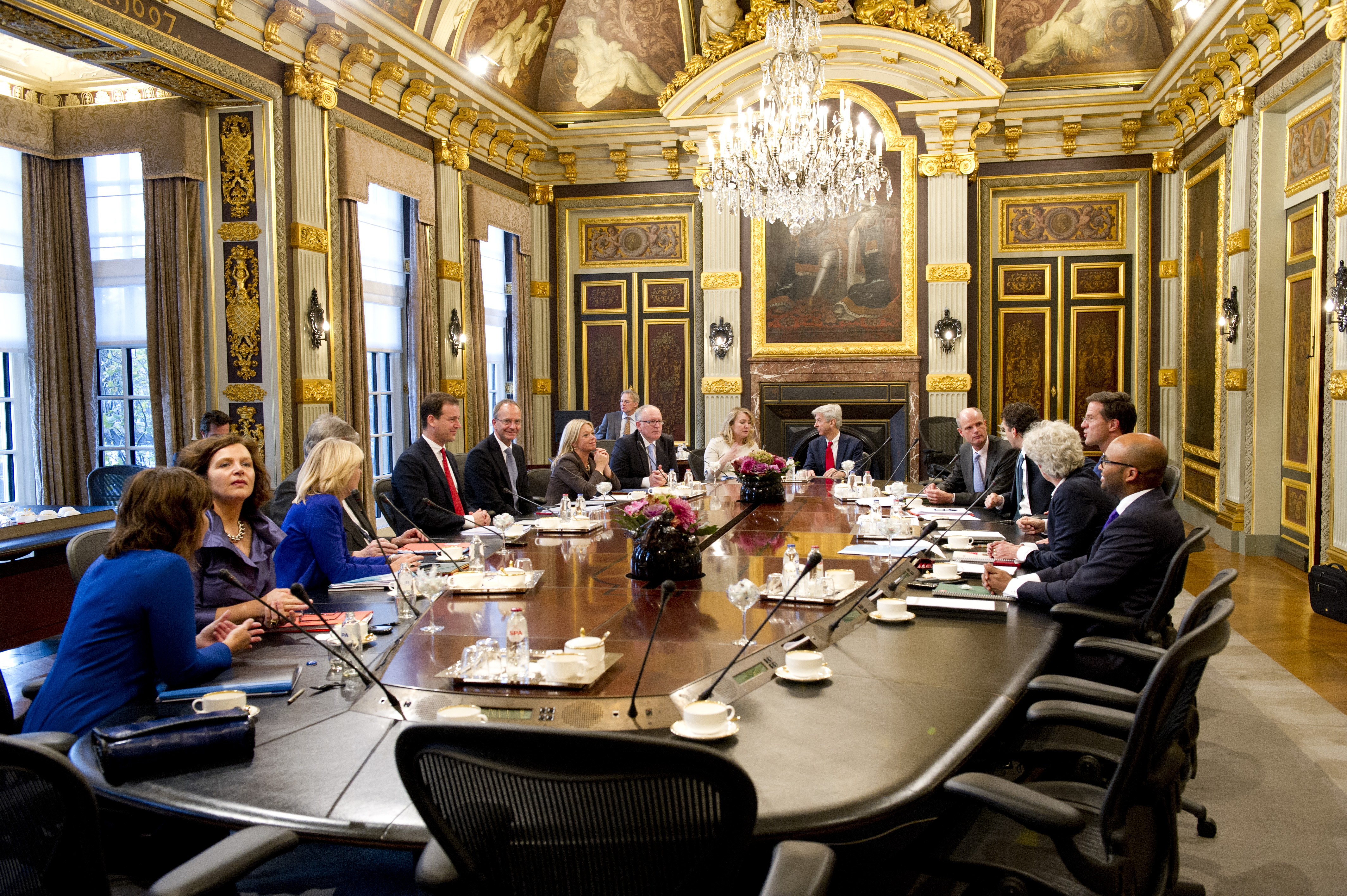Council Of Ministers (Netherlands) on:
[Wikipedia]
[Google]
[Amazon]
 The Council of Ministers ( nl, Ministerraad) is the executive council of Dutch Government, formed by all the ministers including the deputy prime ministers. This executive council initiates laws and policy. The Council of Ministers is distinct from the
The Council of Ministers ( nl, Ministerraad) is the executive council of Dutch Government, formed by all the ministers including the deputy prime ministers. This executive council initiates laws and policy. The Council of Ministers is distinct from the
 The Council of Ministers ( nl, Ministerraad) is the executive council of Dutch Government, formed by all the ministers including the deputy prime ministers. This executive council initiates laws and policy. The Council of Ministers is distinct from the
The Council of Ministers ( nl, Ministerraad) is the executive council of Dutch Government, formed by all the ministers including the deputy prime ministers. This executive council initiates laws and policy. The Council of Ministers is distinct from the cabinet
Cabinet or The Cabinet may refer to:
Furniture
* Cabinetry, a box-shaped piece of furniture with doors and/or drawers
* Display cabinet, a piece of furniture with one or more transparent glass sheets or transparent polycarbonate sheets
* Filing ...
which also includes state secretaries. State secretaries do not attend the Council of Ministers unless they are requested to do so and they do not have voting rights.
The Council of Ministers meets every week on Friday in the Trêveszaal (English: Room of Treaties) of the Binnenhof. It makes decisions by means of collegiate governance. All ministers, including the Prime Minister, are (theoretically) equal. These meetings are chaired by the Prime Minister. Behind the closed doors of the Trêveszaal, ministers can freely debate proposed decisions and express their opinion on any aspect of cabinet policy. Once a decision is made by the Council, all individual members are bound by it and are obliged to support it publicly. Members of the cabinet will step down after not agreeing with a particular decision of the government. Generally much effort is put into reaching relative consensus on any decision. A process of voting within the Council does exist, but is hardly ever used. After each Council of Ministers, a press conference is held at the Nieuwspoort by the Prime Minister, or if he is travelling abroad or incapacitated the first Deputy Prime Minister.
Together with the King
King is the title given to a male monarch in a variety of contexts. The female equivalent is queen, which title is also given to the consort of a king.
*In the context of prehistory, antiquity and contemporary indigenous peoples, the ...
, the Council of Ministers forms the Government, also known as the Crown, which makes all the major decisions. In practice the King does not participate in the daily decision-making of government, although he is kept up to date by weekly visits (on Monday) of the Prime Minister. The Dutch Constitution does not speak of cabinet, but instead only of the Council of Ministers and Government.
See also
* Council of Ministers of the Kingdom of the NetherlandsReferences
{{DEFAULTSORT:Council Of Ministers Of The Netherlands Politics of the Netherlands